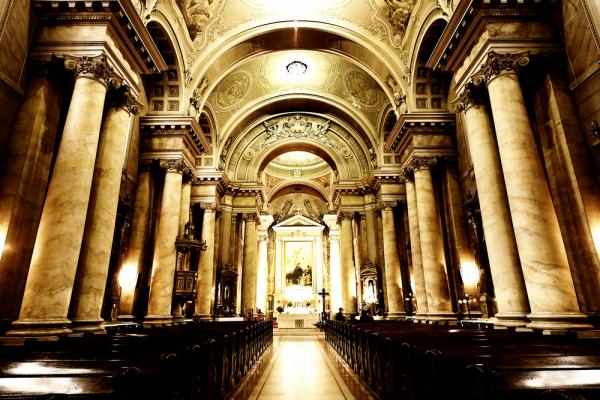What is a church?
Is it the stained-glass windows or welcome bell mounted in the steeple? Is it the straight-backed pews or scent of incense wafting into the narthex? Sunday school classrooms or spaghetti dinners in the basement?
If you view a church as a building, what happens when it goes away?
According to Reuters, 2011 was a record year for church foreclosures:
“Since 2010, 270 churches have been sold after defaulting on their loans, with 90 percent of those sales coming up after a lender-triggered foreclosure, according to the real estate information company CoStar Group," the article reads. "In 2011, 138 churches were sold by banks, an annual record, with no sign that these religious foreclosures are abating, according to CoStar.”
It is heartbreaking, to be sure. These beautiful, historic buildings hold the echoes of hope and salvation for many throughout the years. But God’s church is greater than the bricks and mortar that hold his disciples.
When the New Testament mentions “the church,” it is talking about the people—the body of Christ—who received the Holy Spirit and are sent to tell the Gospel.
The Greek word ekklesia refers to “the gathered ones,” or believers called into community with God. The book of Acts ascribes emotions and actions to the church. “Great fear seized the whole church” (Acts 5:11) and “the church sent them on their way” (Acts 15:3). When you look at it this way, you’re not “going to church”—you are the church.
Christians, of course, know this. But our Americanized idea of success—even success in membership—equaled bigger sanctuaries, sound booths, daycare centers and multi-million dollar building projects. Churches became communities in and of themselves—in the community, but not with the community.
When we follow a biblical model, we can see that little time was spent worrying about where to meet and what accoutrements would attract the right kind of crowd. Disciples met in public squares and people’s homes to evangelize and fellowship with other believers. They were out in the community, forming relationships, and being the church.
I believe there is a call to return to the roots of Christianity. Especially in this time of economic instability, what need have we for fancy buildings and expensive programming? The word of God is just as true in my living room or in a coffee shop as it is in a 1,000-seat sanctuary.
While it’s certainly difficult to see great houses of worship fall to the brokenness of the world, we can be confident that it won’t affect the presence and impact of God’s ekklesia.
“You are no longer foreigners and strangers, but fellow citizens with God’s people and also members of his household, built on the foundation of the apostles and prophets, with Christ Jesus himself as the chief cornerstone. In him the whole building is joined together and rises to become a holy temple in the Lord. And in him you too are being built together to become a dwelling in which God lives by his Spirit.” - Ephesians 2:19-22
Catholic church interior photo, Rechitan Sorin, Shutterstock.com
Got something to say about what you're reading? We value your feedback!
